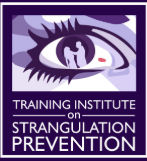Part 1 - "He choked me. I thought I was going to die." will cover:
- Updates on the Danger Assessment Tool and new research on Traumatic Brain Injury
- Understanding the impact of an of anoxic injury, traumatic brain injuries and delayed consequences
- How to explain the medical aspects of strangulation and suffocation to victims
- What to do when the victim answers YES to question about being "choked"
- Tools from the Institute to help front-line workers
- Emerging practices at Family Justice Centers and DOVE
- How to support a survivor who has been strangled and potentially suffering from the long-term consequences of strangulation such as traumatic brain injury
- Practical tips from the panel, the field and survivors
Objectives:
- Improve our understanding of the immediate, delayed, and long-term health consequences of non-fatal strangulation
- Discuss promising practices emerging at Family Justice Centers, hospitals, and/or multi-agency organizations
- Review the Danger Assessment Tool and new research
- Provide practical approaches for front-line staff at Centers on how to best provide services and support for survivors of strangulation





